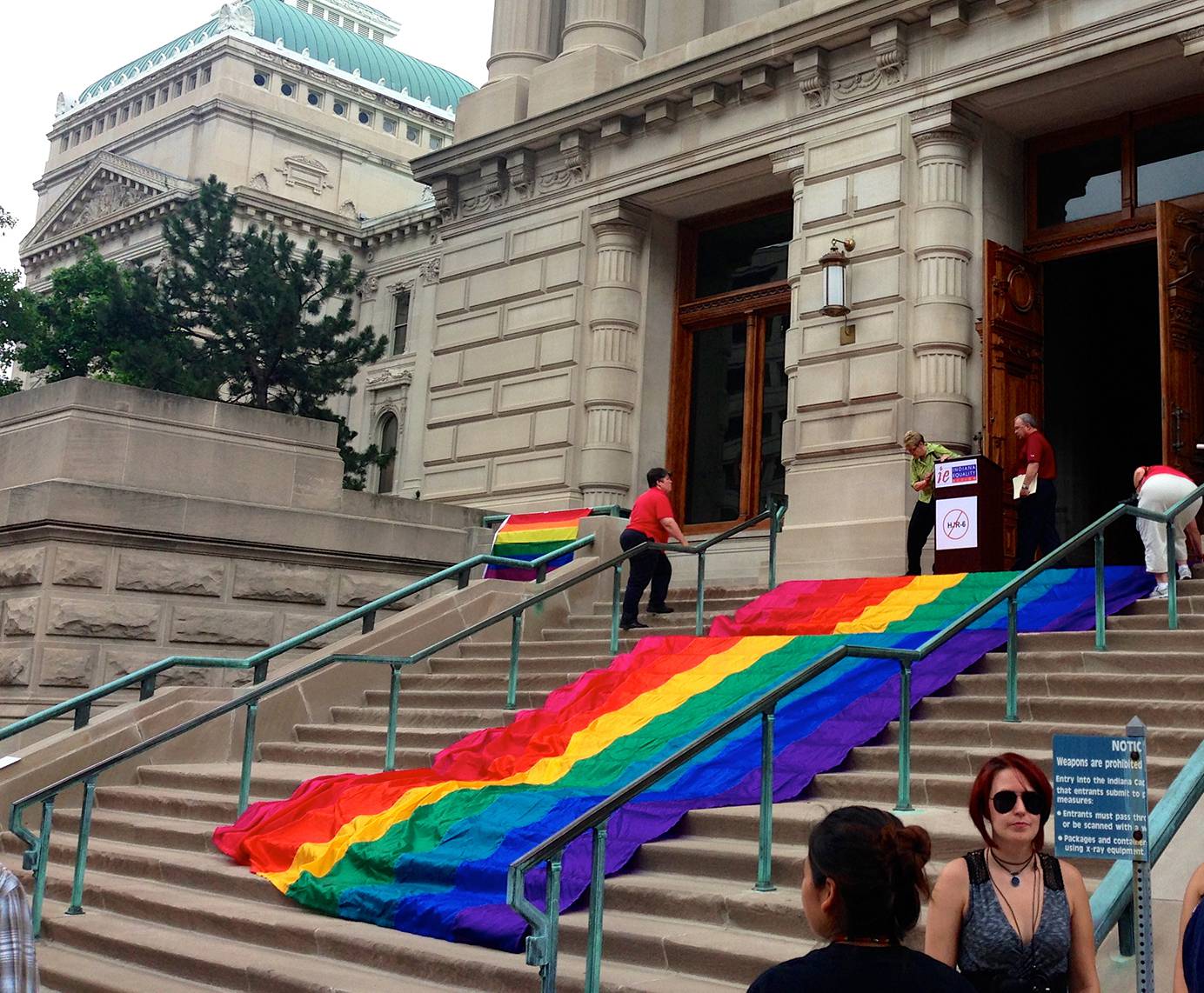The “Free Exercise Clause” of the U.S. Constitution states that the U.S. Congress can’t “prohibit the free exercise” of religion or religious practices. And Indiana just reinforced that statement in a big way.
In a 40-10 vote, the Indiana Senate approved a bill called “The Religious Freedom Restoration Act” on Tuesday. The bill is intended to protect those with strong religious beliefs, stating that state and local governments cannot make laws that interfere with peoples’ religious beliefs. The vote went along with party lines: all 10 Democrats in the Senate voted against it, but due to the Republican majority, the bill will move on to the Indiana House of Representatives.
“You don’t have to look too far to find a growing hostility toward people of faith,” Indiana Sen. Scott Schneider, author of the bill, told the Indianapolis Star. “This bill acts as a shield, not a sword.”
Many, though, are up in arms about the controversial bill. Those in opposition, such as Indiana Sen. Greg Taylor, say it could lead to a rise in unnecessary unemployment benefits for those who don’t really need them. On Wednesday, Taylor told Indiana Public Media the story of someone who was fired because they refused to work on Sundays due to their religion.
“That person can go apply for unemployment benefits and the government has to provide it, unless they state a compelling interest as to why they are not going to provide that government benefit,” he said.
However, some people have realized an even more amoral consequence. With the October 2014 legalization of same-sex marriage in Indiana, this could be a step backwards, perhaps allowing business owners to refuse service for same-sex weddings and similar services.
“We are extremely disappointed that Indiana’s Senate voted to allow religious discrimination in many areas of life for Indiana’s families, workers and others,” said Jennifer Pizer, national director of Lambda Legal’s Law and Policy Project, in an interview with San Diego Gay and Lesbian News on Tuesday. Lambda Legal is the oldest and largest legal organization representing LGBTQ+ and HIV-positive people. “We have seen this over and over — bills that say they are about protecting one thing when the real goal is to target and discriminate against LGBT people, with vast implications for everything else.”
The bill is highly contested, and it brings up serious debate over where the line can be drawn in providing people religious freedom and maintaining the separation of church and state. It’s a hard question, because it takes away the idea of democracy — how do you pacify people and grant them what they feel is freedom without excluding other people?
Businesses have the right to deny people service because they’re a private enterprise, but that doesn’t mean they should have the right to do so. The state coming out with something this strong that could so easily be used against gays and lesbians evokes a lot of emotions and sets a concerning precedent for what Indiana stands for. It is a notoriously red state, but the intensity with which they retaliated against the legalization of same-sex marriage is still shocking.
This reminds us of two other, slightly smaller-scale events: Chick-fil-A CEO Dan Cathy in 2012 came out against gay marriage, causing many people to stop eating there, but he never came out and said that Chick-fil-A was going to refuse service to gays and lesbians. And up until Jan. 1, 2014, the Boy Scouts of America did not grant membership to gay people, even in 2004 releasing a statement saying that homosexuality is “inconsistent with the obligations in the Scout Oath and Scout Law to be morally straight and clean in thought, word and deed.”
While there are clearly many not-OK items in that statement, they did take it back in May 2013 and now allow gay men to participate in the program.
Even if we don’t agree with it, we can understand the fairness behind allowing a private entity to decide for themselves whether or not they want to serve gay people. However, when it comes to consumer goods, such as a chicken sandwich or a wedding cake, a business shouldn’t be able to deny service to people simply due to their own religious beliefs. It eerily echoes things in history from which we are supposed to have moved on. Indiana becoming a state of “gay” businesses versus anti-gay businesses is reminiscent of the very illegal practice of segregation.
However, at least this country seems to (mostly) be going in the right direction. Alabama, most recently, legalized same-sex marriage, effective on Feb. 9. Ultimately, this discriminatory law won’t last long, and it’s just going to land Indiana on the wrong side of history.






















































































































